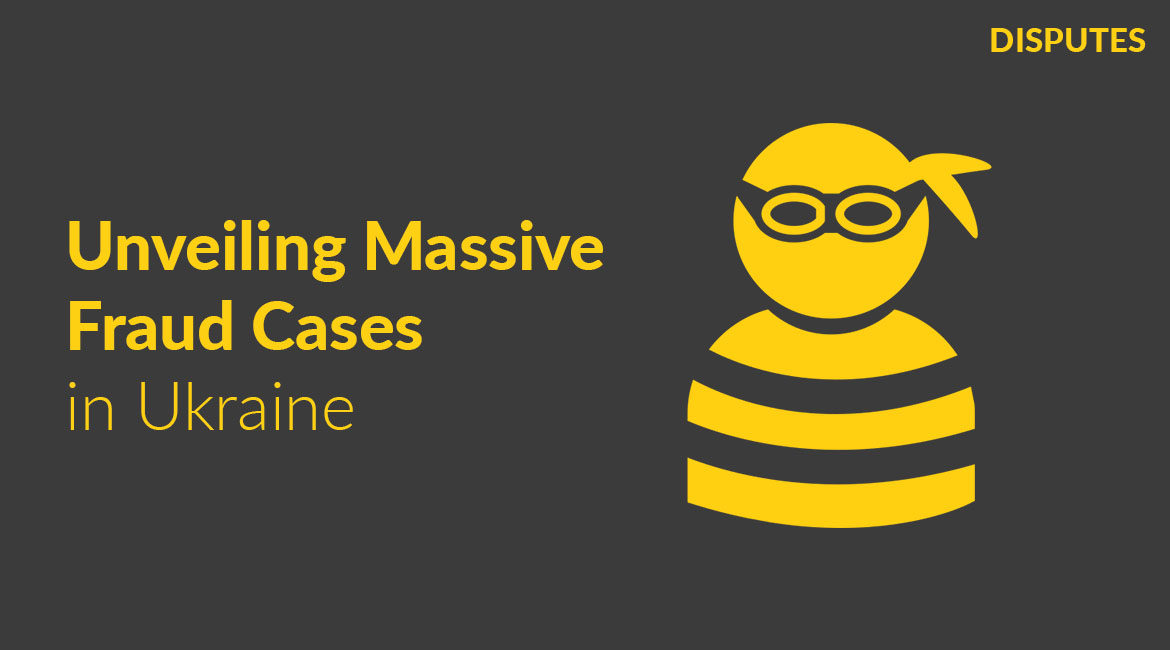Today we address a critical issue impacting many in Ukraine and internationally. In recent years, after the War started, Ukraine has seen an alarming rise in fraudulent activities, with schemes designed to exploit unsuspecting victims both domestically and internationally. This article aims to enhance awareness about two prominent fraud categories: the exploitation of foreign men by deceitful women and the elaborate African inheritance scams, offering insights into how our legal expertise can help discern and combat these deceptive practices.
Category 1: Exploitation of Foreign Men by Deceitful Women: A troubling form of fraud is observed in the activities of some Ukrainian women who engage in relationships with foreign men. These women often manipulate their victims emotionally, coaxing them to send money for various reasons such as visa applications, emergency medical expenses, or to help release them from fictitious captivity by local gangs. Sadly, these claims are typically false, leveraging the goodwill of these men under the guise of love or desperate circumstances.
Our legal team can help identify if you are being targeted in such schemes. We offer consultations to review correspondence and provide insights into common tactics used by scammers. Recognizing the patterns and inconsistencies in the stories told by these individuals can be a strong indicator of fraud.
Category 2: African Inheritance Scams: Another widespread scam in Ukraine involves intricate stories about enormous inheritances from Africa, supposedly kept in non-existent Ukrainian banks. Victims are duped into paying hefty fees for legal papers, transfer costs, or bribes, all to access a fortune that doesn’t exist. These scams are sophisticated, often involving forged documents and fake officials.
Category 3: Fake Commodities Sales Post-War: Exploiting Global Sympathy.
In the wake of the ongoing conflict in Ukraine, a new fraudulent trend has emerged, exploiting the surge of global sympathy towards the country. Scammers are setting up fictitious businesses claiming to sell Ukrainian goods such as grains, oils, and garments. These fake enterprises often target individuals and companies in Western countries who are eager to support Ukraine by purchasing what they believe are authentic Ukrainian products.
These scams usually operate by creating convincing but fraudulent websites and social media profiles, complete with fake testimonials and counterfeit certificates of authenticity. Potential buyers are lured with compelling stories of helping Ukrainian farmers or businesses hit hard by the war, coupled with offers of products at attractive prices. However, once the payment is made, either the goods never arrive or they turn out to be vastly different from what was advertised, if they exist at all.
How Our Legal Expertise Can Help prevent fraud in this category:
Verification of Business Credentials: Our team can assist in verifying the legitimacy of the business and its operations. This includes checking the authenticity of business licenses, addresses, and the identities of the people involved.
Secure Payment Advice: We provide guidance on conducting transactions in a manner that ensures some form of recourse. This might involve using secure, traceable payment methods that offer buyer protection.
Contract Review: Before committing to any purchase, especially in bulk or high-value transactions, it's crucial to have legal experts review any contracts or agreements. Our attorneys can ensure that all legal bases are covered, and that there are clear terms regarding the quality, delivery, and refund policies.
Legal Recourse: In cases where fraud is detected, our firm is prepared to pursue legal action to recover lost funds and hold the fraudulent parties accountable. This can include local legal actions within Ukraine or pursuing international legal avenues depending on the jurisdiction.
The exploitation of goodwill by fraudulent schemes selling non-existent Ukrainian goods is a serious concern that tarnishes genuine efforts to support the country during these challenging times. Our legal firm is committed to combating these scams by offering comprehensive legal support and guidance to ensure that your desire to help does not end in financial loss. We urge anyone considering purchasing goods from Ukraine to consult with legal experts to validate the authenticity of the deals and safeguard against fraud.
Our services include verifying the legitimacy of documents and entities involved in such transactions. We can guide you through the process of due diligence and help you understand the legal landscape, which can often indicate whether an opportunity is genuine or a potential scam.
Combating Fraud: Vigilance and Legal Support: To defend against these deceptive activities, we advocate for vigilance and educated skepticism when dealing with strangers who promise financial gains or emotional bonds out of the blue. Here are key precautions everyone should take:
Be cautious with online relationships, especially if financial transactions are suggested or requested.
Verify the legitimacy of any financial institutions or legal processes involved in transferring large sums of money.
Engage with legal professionals who are experienced in fraud cases to get advice or to confirm the authenticity of the situation.
Always report suspected fraud to the authorities to prevent further exploitation of others.
Conclusion: The increasing prevalence of large-scale fraud in Ukraine requires enhanced awareness and proactive defensive measures. Understanding the tactics used by fraudsters and fostering cautious behavior are essential steps towards mitigating the effects of these crimes. Our legal firm is dedicated to supporting victims of such schemes, providing expert advice, and fostering a safer, more secure environment. If you suspect that you are being targeted by a scam, do not hesitate to contact us for immediate assistance and legal support.

 EN
EN  UA
UA 






